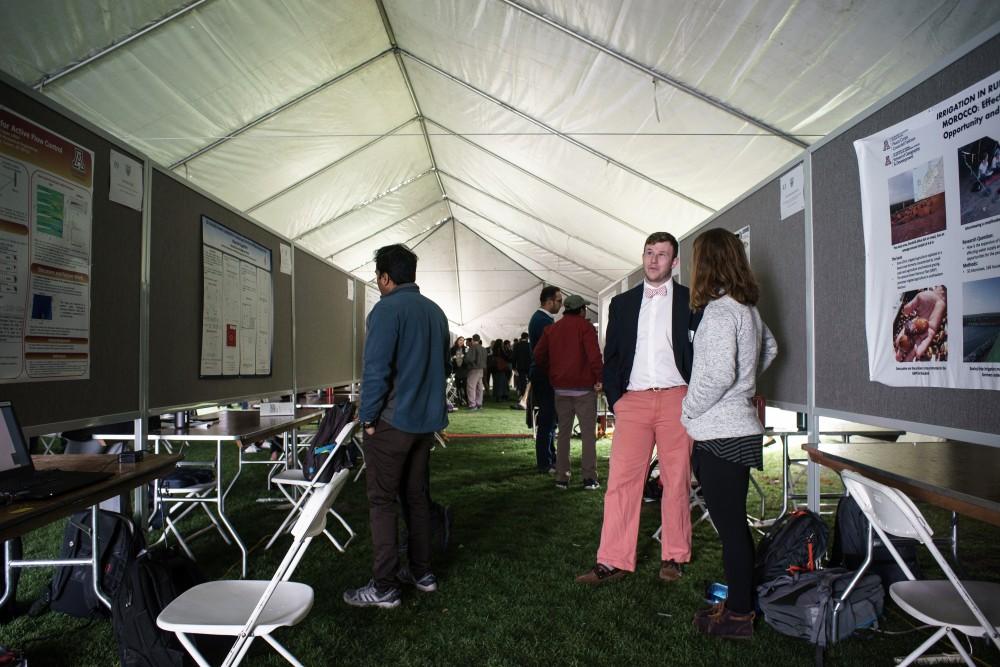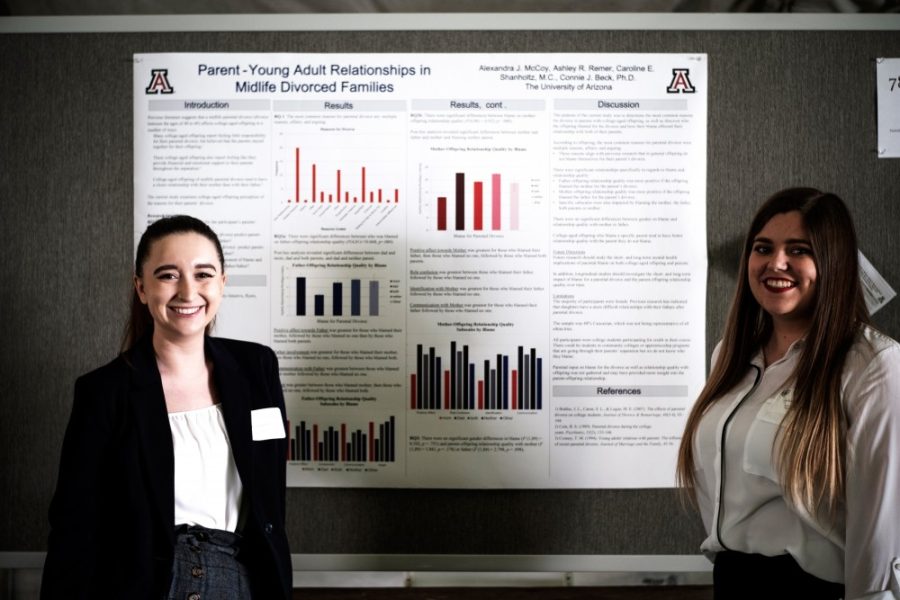The Graduate and Professional Student Council hosted its 27th annual showcase on Wednesday, Feb. 13, on the University of Arizona Mall to display work from undergraduate, graduate and doctoral students across all fields.
The showcase first started in 1992-1993 to celebrate the “industry-leading” research, according to the GPSC website.
Each year, about 100 students showcase research in various fields. The categories for the showcase are Communication and Expression; Community, Culture and Society; Technology and Innovation; Human Health or Environmental Impact.
According to the GPSC website, the showcase is important because it allows the UA community and the Tucson community to see the research being done and its importance.
RELATED: ZonaZoo looking to break record for most Valentine cards delivered
Heidi Steiner, a master’s student in the applied biosciences program, said she wanted to participate in this event to show her research she has been doing in Jason Karnes’ the lab in the College of Pharmacy’s Pharmacy Practice and Science Department.
“The general idea is focusing on personalized and precision medicine, so we use genetic variants to predict the best drug therapy or potentially a drug that would have an adverse effect in someone,” Steiner said. “We use your genetic information and put it in a mathematical equation to predict dose.”
The algorithms already explain about half of the variability, but Steiner says she wants to improve that by using stratified populations. Her population of focus is Hispanics and Latinos of Mexican-American descent.
“We are trying to decide if [Latino people are] actually maybe more than one category of people for the goal of improving the algorithm to best predict Warfarin dose so that people don’t end up having adverse drug reaction or ending up the hospital due to their Warfarin therapy,” Steiner said.

According to Steiner, presenting research orally is her preferred method, and she is looking for more opportunities to present her work.
Another presenter, East Asian studies doctoral student Jingyi Li, decided to participate in the showcase after the deadline to apply got extended.
Li is not a rookie when it comes to presenting her research. Last year, she presented a different topic in the Grad Slam, a campus-wide competition for the best three-minute, live, oral presentation about the research graduate students are doing, according to the GPSC website.
This time, Li presented research on the most efficient way to teach Japanese paleography.
Paleography is the study of ancient writing systems and their cultural context, according to Li.
“Japanese paleography studies cursive Japanese writing that was produced before the 1900s, which is very different than modern Japanese writing,” Li said.
According to Li, pre-modern texts are impossible to read, even for modern Japanese speakers.
“A lot of people think it’s a skill for literature studies and history, but many people don’t realize that it’s also important for other fields like anthropology, geography and astronomy,” Li said.
RELATED: College of Medicine’s career fair looks to reach high school students
Li said she wants to help Japanese paleography reach a broader audience by finding a way to allow people to practice it without needing to know modern Japanese, which can take years to learn, according to Li.
“In this new method, I’m trying to incorporate teaching the history of modern Japanese characters and how these characters came to be and how they became simplified over time,” Li said. “Hopefully this will provide students a more complete background of what they are learning and also when teaching Japanese paleography.”
All students in the showcase are eligible to win a prize for their work.
Two separate awards for undergraduate and graduate students are given in each of the five categories, as well as a GPSC prize for one graduate student and an Associated Students of the University of Arizona prize for one undergraduate student.
All awards are cash prizes.
The largest award in the Presidential award, which is $1,000 and presented to the winner by UA President Dr. Robert Robbins.
For more information regarding the showcase or GPSC, visit the website.
Follow Leia Linn on Twitter








